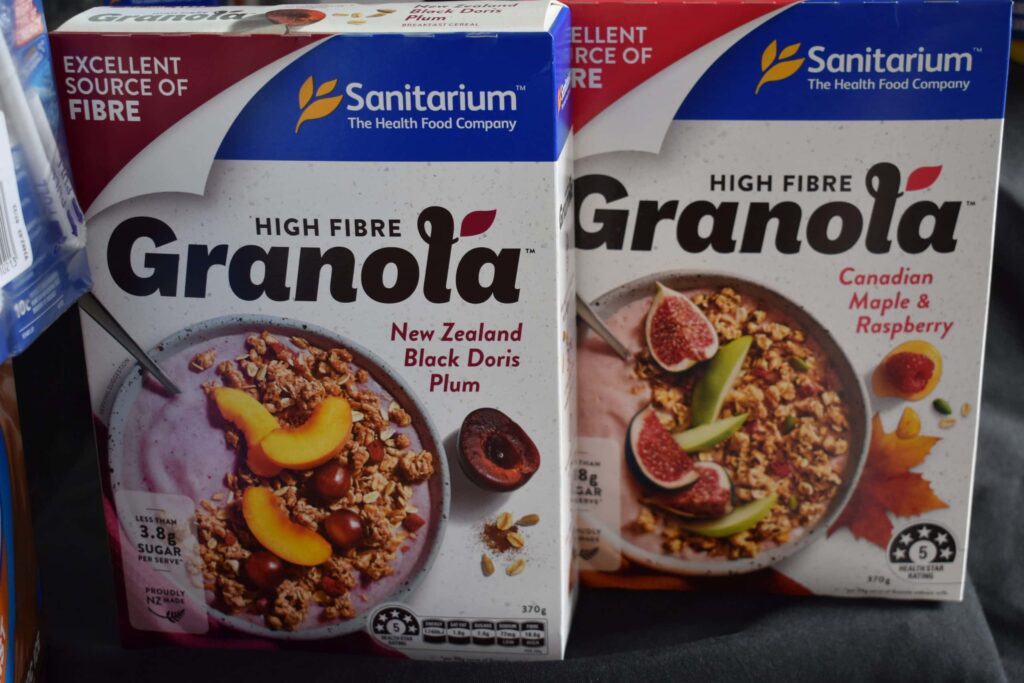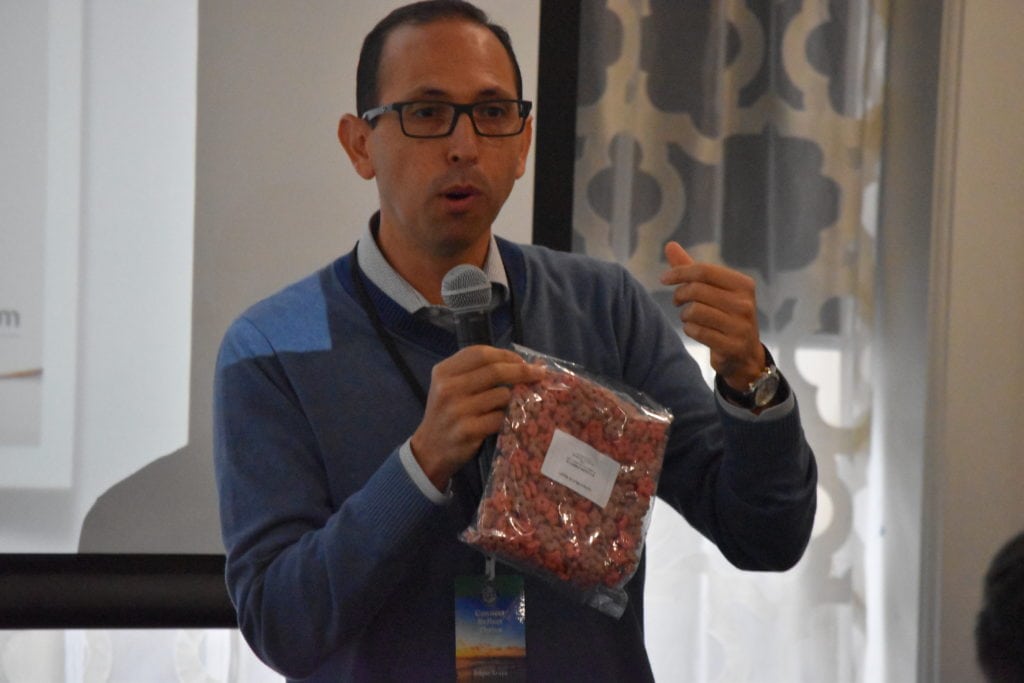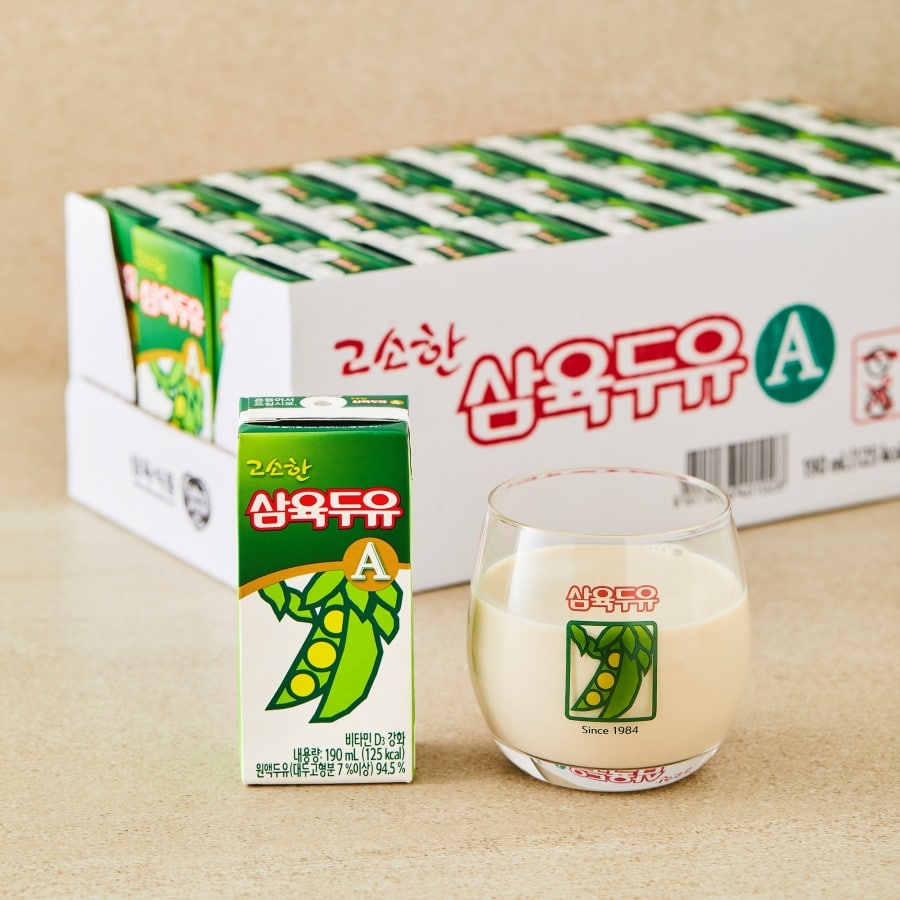Health Food Trends Highlight Adventist Companies’ Potential
In New Zealand, experts weigh in on opportunities for church-managed organizations.
February 22, 2023 | Auckland, New Zealand | Marcos Paseggi, Adventist Review
Current food trends highlight the potential for growth at health food companies managed by the Seventh-day Adventist Church around the world. This is one of the notions that market researchers and Adventist food company executives highlighted during the five-day 2023 Adventist Health Food Association (AHFA) Conference in Auckland, New Zealand.
Dozens of leaders of health food companies managed by the Adventist Church on several continents met for the February 12-17 event, the first in-person gathering of food executives after the pandemic.

Adventist Church–managed health food companies keep innovating by developing products that customers value and are increasingly willing to purchase. [Photo: Marcos Paseggi, Adventist Review]
For one, inflation in many developed countries has prompted a tightening of belts in many households, with low-income customers willing to opt for brands that are cheaper or not as well known. At the same time, longer trends, especially for higher-income customers, show a different picture. “Health and wellness continue to be top of mind for consumers,” she said. “Menopause, sports recovery, plant-based food, and functional foods continue to grow in supermarkets.”
According to Simpson-Pudney, this trend includes products that are said to promote gut health (organic multi-grain bread, for instance), fermented foods (such as sauerkraut and coleslaw), immunity boosters (natural juices and sugar-free cereals), and antioxidants (selected berries juices).

Alimentos Ceapé production manager Edgar Araya shows samples of some of the new products the factory in Argentina produces for the Granix brand. [Photo: Marcos Paseggi, Adventist Review]
What the Trends Mean for Adventist Companies
Food executives said the Adventist Church has emphasized healthy eating for decades, long before it became a trend. This is an advantage, as church-managed companies seek to innovate and manufacture high-quality products to reach the highest shares in the health food market.
In many developed countries, plant-based foods show double-digit increases in sales as consumers seek healthy, cost-effective ways to replace meat. The market research in New Zealand also showed that among those who still have not changed their eating habits, almost one in three respondents answered that they are ready to give it a try “in the next 12 months.”

South Korea’s Sahmyook Foods is increasing its market share for soy milk in South Korea but also in China, Japan, the Philippines, and Vietnam. [Photo: Sahmyook Foods]
In South Korea, Samhyook Foods has steadily increased the production and sales of soy milk in the U.S., Chinese, and Japanese markets. “In particular, Sahmyook soy milk is getting more recognition across Southeast Asia, including Vietnam, where it is number one in soy milk sales,” a promotional video reported.
In Australia and New Zealand, Sanitarium’s So Good soy milk, advertised as “made from non-GM soy protein and with a range of essential nutrients,” has been delivering vegan milk options to consumers for more than 30 years. The company has recently introduced cashew, almond, and coconut plant-based milk options. “All of them are vegan, lactose-free, gluten-free, and a source of calcium.”

For José Eliasib Flores Laguna, manager of the Inter-American Health Food Company, the goal of Adventist food factories is “to preach the gospel through the manufacturing of healthy food options.” [Photo: Marcos Paseggi, Adventist Review]
In Argentina, Alimentos Granix has entered the snack market with healthy alternatives. Its newest products, manufactured by River Plate Adventist University–based Alimentos Ceapé, include veggie snacks whose main ingredients are lentils, soy, chickpeas, and oats. Unlike most snacks in the market, they are touted as “cholesterol-free and low sodium” options.
In Peru, Productos Unión is number one in sales of whole grains and flour bread options in the country. Its products include traditional loaves but also pita bread with grains from the Andes Mountains and another option with flax and chia seeds.

“Our mission is not only to make healthy food but to share the message of Jesus Christ,” Mexico’s Alimentos Colpac CEO Luis Enrique Meza Escobar said. [Photo: Marcos Paseggi, Adventist Review]
A Loftier Goal
Besides market trends and an expected increase in sales, several managers of Adventist health foods companies emphasized that their teams’ ultimate goal is not only to be financially viable but to share a message of hope and healing based on the truth found in the Bible. As José Eliasib Flores Laguna, manager of the Inter-American Health Food Company, put it, “Our goal is to preach the gospel through the manufacturing of healthy food options.”
Juan Antonio Moneró, CEO of Fundación Granix in the Dominican Republic, explained the rationale of the company he leads. “We seek positive financial results because we want to support the preaching of the gospel.”

South Pacific Division president Glenn Townend (left) closes the 2023 Adventist Health Food Association Conference in Auckland, New Zealand, on February 16. “Everything we do should be focused on mission,” he told participants. [Photo: Marcos Paseggi, Adventist Review]